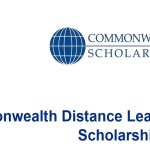Commonwealth Shared Scholarship 2026/2027

The Commonwealth Shared Scholarship supports students from eligible Commonwealth countries to study for a taught master’s degree in the United Kingdom. The programme is part of the work of the Commonwealth Scholarship Commission in the UK (CSC) and is aimed at students who have strong academic records and clear plans to support development in their home countries, but who cannot afford to study in the UK without help.
The Commonwealth Shared Scholarship is one of three master’s awards managed by the CSC. It sits within the wider Commonwealth Scholarship and Fellowship Plan and reflects the UK’s long-standing link with the Commonwealth. By backing students with talent and clear potential from different backgrounds, and helping them return home as leaders in public service, civil society, and other fields, the CSC supports both sustainable development and the UK’s role in international partnership.
Overview of the Commonwealth Shared Scholarship programme
The Commonwealth Shared Scholarship programme funds master’s study at selected UK universities. Awards are made for full-time study starting in September or October 2026, and are based on both merit and need.
The scheme is funded through a partnership between:
- The Commonwealth Scholarship Commission in the UK.
- Participating UK universities.
Together, they cover the cost of tuition, travel, and living expenses so that students can focus on their studies and their wider development goals.
What the scholarship covers
Each Commonwealth Shared Scholarship provides a full support package for the Scholar, including:
- Return airfare from the Scholar’s home country to the UK at the start and end of the award, funded by the CSC.
- Approved tuition fees in full, covered through an agreement between the CSC and the UK university. Scholars do not pay any part of the tuition fee.
- Monthly stipend (living allowance) paid and funded by the university, at current rates of:
- £1,452 per month, or
- £1,781 per month for Scholars studying at universities in the London metropolitan area.
- Warm clothing allowance where this is needed, paid and funded by the university.
- Thesis grant for the cost of preparing a thesis or dissertation, where applicable, paid by the university and funded by the CSC.
- Study travel grant to support travel within the UK or overseas for study-related purposes, paid by the university and funded by the CSC.
- Contribution towards the cost of a required tuberculosis (TB) test for the visa process, with receipts, paid by the university and funded by the CSC.
- Child allowance where the Scholar is widowed, divorced, or a single parent, and their children live with them at the same address in the UK:
- £622 per month for the first child under 16.
- £154 per month per month for the second and third child under 16.
The award does not cover travel or other costs for dependants, and it does not refund journeys taken before the scholarship is confirmed.
Who can apply for the Commonwealth Shared Scholarship
To be considered for a Commonwealth Shared Scholarship, applicants must meet all of the following conditions:
- Citizenship and residence
- Be a citizen of, or have been granted refugee status by, an eligible Commonwealth country.
- Be permanently resident in an eligible Commonwealth country.
- Study start date
- Be ready to start academic study in the UK at the beginning of the 2026 UK academic year, usually in September.
- Academic requirements
- By September 2026, hold at least an upper second-class (2:1) honours first degree, or
- Hold a lower second-class honours degree plus a relevant postgraduate qualification, usually a master’s degree.
- Previous time in high income countries
- Not have studied or worked for more than one academic year in a high income country.
- Financial need
- Be unable to afford to study in the UK without this scholarship.
- Documents
- Provide all required supporting documents in the correct format by the stated deadline.
What applicants must include in the form
The online application form for the Commonwealth Shared Scholarship asks for detailed academic and professional information. Applicants are expected to:
- List all undergraduate and postgraduate qualifications gained at university level.
- List up to 10 key publications and prizes, where relevant.
- Give a full employment history and explain how their work links to the master’s course they want to study in the UK.
- Provide the names and positions of three referees who can:
- Comment on their ability to benefit from study in the UK, and
- Comment on their capacity to bring development impact after the scholarship.
- One referee should be a current employer, if the applicant is working.
- Complete a Development Impact statement made up of four parts, showing clearly how the proposed study will support social or economic development in their home country.
Strong applications connect past study, work experience, and future plans in a clear and honest way.
Key dates and application period
For the 2026/2027 academic year, applications for Commonwealth Shared Scholarship awards:
- Open at 16:30 GMT on Wednesday 12 November 2025.
- Close at 16:00 GMT on Tuesday 9 December 2025.
The scholarships are for full-time master’s study in the UK starting in September or October 2026. Applicants need to check the course lists and partner universities on the official CSC site and make sure that their chosen programme is part of the Commonwealth Shared Scholarship scheme.
To begin the process, students should use the official Commonwealth Shared Scholarship online application portal and follow the guidance given there.
Why the scholarship matters for students and their home countries
The Commonwealth Shared Scholarship is designed for students who want to use a UK master’s degree to support development in sectors such as health, education, climate resilience, public policy, and inclusive growth. Many Scholars work in public bodies, civil society, or community projects before applying and intend to return to these areas after their studies.
By covering the costs of study and daily living, the scholarship lets students focus on building knowledge, skills, and networks. On returning home, Scholars are expected to use what they have learned to support long-term social and economic progress, share skills with others, and contribute to national and regional plans.
Share This Post: If this post helped you, share it with others! Use the buttons below to spread the word!
More Articles:
- Commonwealth Distance Learning Masters Scholarship 2026/2027: Eligibility, Coverage, Deadline
- Ban Ki-moon Foundation Global Citizen Scholarship Program 2026: Apply, Eligibility, Deadline
- Connect NextGen Hackathon 2026: Application Link, Focus Areas, Eligibility, Deadline (10 March)
- Petty Traders Grant Support Programme 2026: Apply for ₦10,000 to ₦100,000
- Federal University Dutse (FUD) Students’ Benevolent Scholarship Scheme 2025/2026: Eligibility, Form, Deadline
- Petroleum Technology Development Fund (PTDF) Overseas Scholarship 2026: UK, Germany, France, Malaysia MSc/PhD Requirements and Deadline
- 2026 COMSATS University Islamabad Scholarship: Application Links and Deadline for Nigerians
- Ahmadu Bello University (ABU) NHEF Scholars Program 2026: How to apply, deadline, and contact numbers








